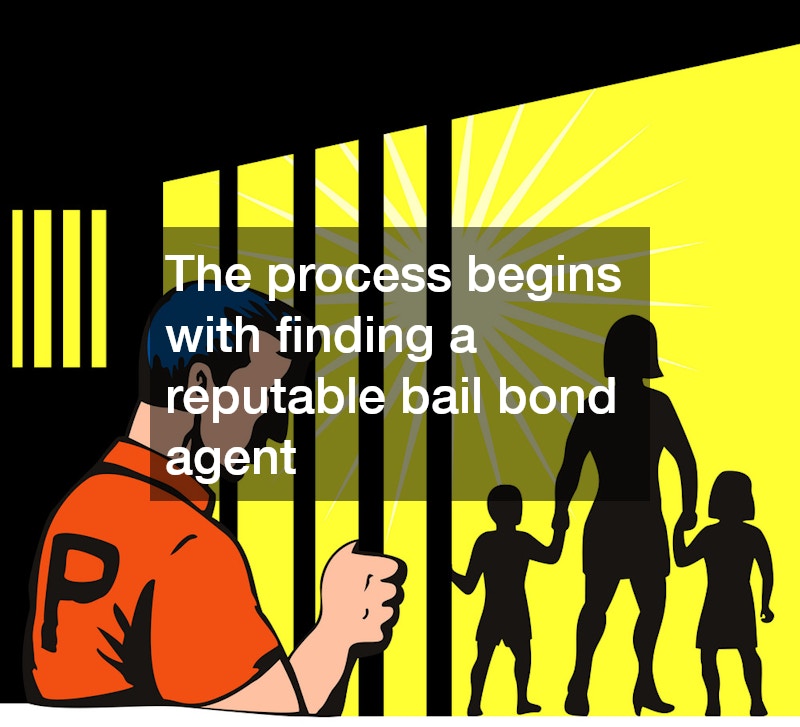
Bail bonds are a legal mechanism used to secure the temporary release of an individual who has been arrested. They serve as a financial guarantee that the accused will appear in court for their scheduled hearings. Typically, when a person is arrested, the judge sets a bail amount based on the severity of the alleged crime, the person’s history, and other factors.
If your loved one cannot afford the full bail amount, a bail bond agent can provide a bail bond for a fee, usually a percentage of the bail amount. This system ensures that individuals don’t have to stay in jail while awaiting trial due to financial constraints.
The process begins with finding a reputable bail bond agent, who will charge a non-refundable fee for their services. This fee is typically around 10% of the total bail amount, though it can vary by state or based on the nature of the charge. Once hired, the bail bond agent will handle the paperwork and finance arrangements, allowing your family member to be released. It’s important to note that while the bail bond agent assumes responsibility for the full bail amount, they will seek reimbursement from you or other co-signers if the defendant skips court. Therefore, entering into a bail bond agreement requires careful consideration of the involved financial and legal responsibilities.
After securing a bail bond, the defendant is obligated to attend all court proceedings as scheduled. Failure to do so not only results in the forfeiture of the bail but also leads to additional charges and the issuance of a warrant for the defendant’s arrest. Moreover, any assets put up as collateral for the bail bond may be at risk if the defendant fails to appear in court. Given these stakes, understanding the terms and conditions of bail bonds is crucial to ensure compliance and to protect your financial interests. The bail bond system, therefore, serves as a vital bridge for defendants caught in the legal system, balancing community safety with individual freedoms.
The Role of a Bail Bondsman
A bail bondsman, also known as a bail agent, plays a pivotal role in the bail process by providing the necessary funds for bail when the defendant or their family cannot afford it. Once contacted, the bail bondsman assesses the case details and offers a bail bond for a fee. By securing the services of a bail bondsman, family members can facilitate the release of their loved ones from jail more quickly, preventing disruptions to their daily lives. The bail bondsman thus acts as a facilitator and financial resource, making the legal system more navigable for those without immediate financial means. Furthermore, bail bondsmen often provide valuable guidance on navigating the judicial process beyond just posting bail.
To become a bail bondsman, an individual must meet specific licensing requirements, which vary by state. This licensing process ensures that only qualified and trustworthy individuals handle the sensitive finances and legal responsibilities involved in the bail process. A bail bondsman’s expertise and familiarity with local court systems can be invaluable, especially in cases involving larger bail amounts or more serious charges. By collaborating with defendants and their families, bail bondsmen help demystify the process, advising on court appearances and the obligations set by the court. The professional relationship between a bail bondsman and their clients is built on trust and transparency, ensuring that all parties understand their roles and responsibilities.
Besides providing financial assistance, bail bondsmen often serve as a source of emotional support for families during challenging times. The arrest of a loved one can be overwhelming, and having a knowledgeable ally can alleviate some of the stress. Additionally, many bail bond agencies offer services such as reminders for court dates and check-ins with the defendant to ensure they fulfill their legal obligations. While the primary function of a bail bondsman is to secure release from jail, their wider responsibilities emphasize the importance of reliability, accessibility, and communication. Consequently, choosing a reputable bail bondsman is crucial for ensuring a smooth and compliant process when a family member faces arrest.
Legal Implications and Responsibilities
When engaging with a bail bond, it is vital to understand the legal implications and responsibilities that come with it. By signing a bail bond contract, you essentially agree to be the surety for your family member, promising the court that they will return for all necessary appearances. Failure to meet these terms can result in serious legal consequences, including the loss of collateral used to secure the bond and potential prosecution for failing to support court orders. Therefore, it’s crucial to have an open conversation with your family member about the importance of adhering to court mandates. Being informed about these responsibilities can prevent future legal complications and help maintain family peace.
Moreover, signing a bail bond contract requires transparency and full disclosure with the bail bondsman. As a co-signer, you may be required to provide personal and financial information to ensure your capability to fulfill the bail obligation. The contract you sign should clearly outline the conditions of the bail bond and the expected conduct of the defendant. Reading and understanding the terms before signing is essential in avoiding misunderstandings or surprises. Seeking legal advice before entering into a bail bond agreement can also provide clarity and confidence in your decision, particularly in complex cases or when dealing with unfamiliar legal terms.
Lastly, it is essential to remain vigilant even after the release of your family member. Regular communication with the bail bondsman and staying updated on court dates and legal requirements are crucial components of fulfilling your responsibilities. Additionally, any changes in contact information or circumstances should be promptly reported to the bail bondsman to avoid potential disputes. Cooperating with both the bail agent and legal authorities is integral to successfully managing the bail bond process. By doing so, you protect your financial investment while upholding the legal system’s requirements, ultimately aiding your family member’s journey through the judicial process.





